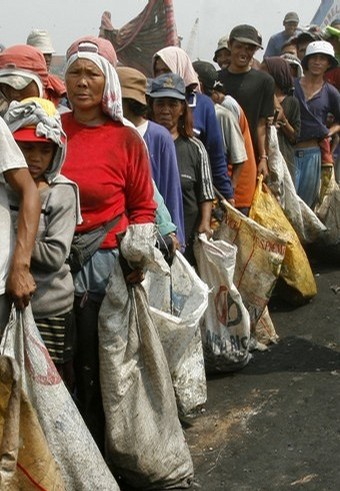- Investment in human capital (e.g., basic education, health) leads to long-run poverty alleviation. Early interventions provide much higher returns over the lifecycle, and
- Cash transfers have an immediate impact on the poverty situation.
That poor households—which do not have the means to improve their education and health status—need some form of subsidies is undeniable. That cash transfers provide immediate relief, especially to poor households suffering from hunger and various deprivations, is obvious.
The policy question, however, is whether or not the 4Ps constitutes an efficient and effective instrument for providing subsidies. More importantly, will conditional cash transfers yield the expected outcomes on education, nutrition, and health? Will the expected human capital investment outcomes be realized?
The budgetary implications of this program are staggering and more so if funded by borrowing. In the next five years, the government hopes to transfer cash to 500,000 poor households. It cannot do this, though, without passing the hat to donors since it simply does not have the resources to fund the envisaged massive program of conditional cash transfer.
Conditional cash transfers have an intuitive appeal because poor households are given the choice on the composition of their consumption bundles. They can choose what they think is best, in contrast to price subsidies, and are simpler than vouchers. They are also far more transparent than subsidies, which are often hidden under earmarks or lumpsum items. There is little chance of leakage, provided there is an effective targeting mechanism.
However, even if the government wants a rapid expansion of the 4Ps, infrastructure bottlenecks may stand in the way of a successful implementation. As such, should the national government not lay down the requisite infrastructure first before it distributes cash to hundreds of thousands of poor households?
We recommend to proceed with the program but with due caution. There is no need to rapidly expand coverage when crucial program components have yet to be tested and proven, like an efficient targeting and monitoring system. While the political calculus seems to favor a rapid expansion of coverage, this Notes argues that it is paramount to first establish empirical evidence about the significant role that the 4Ps plays in producing the expected human capital outcomes crucial for growth and poverty reduction before a rapid expansion is even contemplated.
The full version of this article can be found here.


The 4P’s program of the government is of great help to the poor. But what happened here in my place? instead of the poor people being the recipient, it was the other way around, because mostly the recepients here in Tungawan, Zamboanga Sibugay were not really those considered to be the poorest among the poors but some are those working in the government, some are those whose income are average earners. Kindly monitored closely the program, if it is to the poor then somehow give this to the poor and not to those benefited few. There are in the true essence we call poor but they haven’t been receiving any help. sana naman ma monitor ninyo ito.